Menu of Internationalization Activities
This list provides a comprehensive overview of initiatives and programs designed to advance global engagement in higher education. Organized into sections covering Academic, Capacity Building, Institutional Services, Internationalization at Home, Mobility, and Research, it offers detailed definitions, benefits, impacts, and regional contexts for each activity. This resource serves as a guide for educators, administrators, and policymakers seeking to understand and implement internationalization strategies in academic institutions worldwide.
Academic
Curriculum Internationalization
Definition: Incorporation of global, intercultural perspectives into course content, learning outcomes, and teaching methods to prepare students for global challenges.
Benefits: Enhances global competence, promotes critical thinking, and aligns with workforce needs.
Impacts: Strengthens academic programs, supports European internationalization goals, and fosters inclusive education.
Country Related: Widespread Practice (Key focus in Europe)
Definition: Academic programs enabling students to earn degrees from two institutions in different countries, often on an accelerated timeline, fostering deep academic and cultural collaboration.
Benefits: Provides diverse academic perspectives, enhances global employability through dual credentials, and promotes intercultural competence.
Impacts: Strengthens institutional partnerships, increases global visibility, and drives cross-border academic innovation.
Country Related: Widespread International Practice
English Language Institute
Definition: Programs offering intensive English language training for non-native speakers, serving as a pathway to academic integration with tailored language support and cultural orientation.
Benefits: Improves academic success, enhances communication skills, and fosters social integration for international students.
Impacts: Attracts diverse student populations, supports internationalization goals, and strengthens institutional reputation in Anglophone countries.
Country Related: Global (Prominent in Anglophone nations)
Epistemic Decolonization through ‘Re-Centering Africa’ Curricula
Definition: Curricular reform replacing Eurocentric canons with African epistemologies, texts, and perspectives, as seen at the University of Cape Town.
Benefits: Promotes cultural pride, enhances relevance, and fosters inclusive education.
Impacts: Advances decolonization, strengthens African identity, and influences global curricular reforms.
Country Related: South Africa
Global Citizenship Education
Definition: Courses emphasizing ethical global engagement, social responsibility, and sustainable development to prepare students for global contributions.
Benefits: Fosters ethical leadership, enhances global awareness, and promotes sustainability.
Impacts: Aligns with global development goals, strengthens civic engagement, and supports internationalization.
Country Related: Widespread International Practice
Global Competency Development
Definition: Training equipping staff and students with skills for international engagement, enhancing readiness.
Benefits: Improves skills, promotes collaboration, and fosters cultural competence.
Impacts: Strengthens institutional capacity, supports global education, and elevates preparedness.
Country Related: Widespread International Practice
Global Education Minors/Certificates
Definition: Interdisciplinary programs offering minors or certificates in global education, focusing on social theories and comparative frameworks to address global issues.
Benefits: Prepares students for global careers, enhances intercultural skills, and promotes ethical global engagement.
Impacts: Aligns with U.S. liberal arts traditions, strengthens global curricula, and supports institutional internationalization.
Country Related: United States
Global Experiential Learning Modules
Definition: Short, intensive modules combining virtual and in-person international experiences to develop practical global skills, e.g., Université Laval’s programs.
Benefits: Enhances practical skills, promotes flexibility, and reduces mobility costs.
Impacts: Expands access to global learning, strengthens Canadian experiential education, and fosters innovation.
Country Related: International Practice (e.g., Canada)
Global Learning Certificates
Definition: Credentials recognizing completion of globally focused coursework or activities, validating intercultural competence.
Benefits: Enhances resumes, promotes global skills, and supports career advancement.
Impacts: Strengthens institutional offerings, promotes global competence, and aligns with workforce demands.
Country Related: Widespread International Practice
Intercultural Learning
Definition: Educational activities fostering understanding of cultural differences through collaborative projects or diverse content.
Benefits: Promotes empathy, enhances collaboration, and supports inclusivity.
Impacts: Strengthens global curricula, fosters diverse learning environments, and supports internationalization at home.
Country Related: Widespread International Practice
International Micro-Credentials
Definition: Short-term, internationally recognized certifications earned through cross-border courses, enhancing mobility and employability.
Benefits: Improves flexibility, promotes global recognition, and boosts career prospects.
Impacts: Strengthens global education systems, supports mobility, and aligns with workforce needs.
Country Related: Widespread International Practice
International Teaching Fellowships
Definition: Programs sending faculty to teach abroad for extended periods, e.g., Freie Universität Berlin’s exchanges.
Benefits: Enriches teaching, fosters global collaboration, and enhances expertise.
Impacts: Strengthens German academic networks, supports mobility, and elevates institutional reputation.
Country Related: International Practice (e.g., Germany)
International University Classrooms
Definition: Campus-based learning environments incorporating global content and diverse student interactions to simulate international settings.
Benefits: Enhances global awareness, promotes inclusivity, and fosters collaboration.
Impacts: Strengthens campus diversity, supports internationalization at home, and prepares students for global workforce.
Country Related: Widespread International Practice
Internationalized Assessment Methods
Definition: Assessments incorporating global perspectives or requiring intercultural problem-solving to evaluate students’ global competence.
Benefits: Enhances critical thinking, promotes global awareness, and aligns with learning outcomes.
Impacts: Strengthens academic rigor, supports internationalization goals, and fosters innovative evaluation.
Country Related: Widespread International Practice
Internationalized Co-Curricular Activities
Definition: Campus events like global speaker series or cultural workshops complementing academic learning with global themes.
Benefits: Enhances engagement, promotes cultural exchange, and fosters community.
Impacts: Strengthens campus diversity, supports internationalization, and enriches student experience.
Country Related: Widespread International Practice
Definition: Collaborative programs where multiple institutions jointly award a single degree, integrating international curricula and faculty expertise for global relevance.
Benefits: Enhances academic rigor, provides globally recognized credentials, and fosters cross-cultural collaboration.
Impacts: Strengthens institutional alliances, promotes research synergies, and boosts global competitiveness.
Country Related: Widespread International Practice
Definition: Virtual classroom interactions between students and professors from different countries, exploring topics from varied perspectives.
Benefits: Enhances global collaboration, promotes cultural exchange, and reduces costs.
Impacts: Strengthens virtual education, fosters global connectivity, and supports internationalization.
Country Related: Widespread International Practice
Multilingual Curriculum Development
Definition: Designing courses offered in multiple languages to attract diverse students and enhance accessibility, e.g., Universidad Complutense de Madrid’s bilingual programs.
Benefits: Promotes inclusivity, enhances linguistic skills, and boosts enrollment.
Impacts: Strengthens Spain’s global education appeal, supports diversity, and fosters innovation.
Country Related: International Practice (e.g., Spain)
President’s Award for Global Learning
Definition: University initiatives funding interdisciplinary student and faculty teams to address real-world global challenges in international contexts.
Benefits: Develops practical global skills, fosters teamwork, and enhances problem-solving abilities.
Impacts: Elevates institutional prestige, promotes community engagement, and aligns with U.S. experiential learning priorities.
Country Related: United States
Promotion of African Languages as Medium of Instruction
Definition: Delivering degree programs or courses in indigenous African languages (e.g., Kiswahili, Yoruba, Zulu) to advance linguistic heritage and decolonize education.
Benefits: Preserves cultural identity, enhances accessibility, and promotes inclusivity.
Impacts: Advances decolonization, strengthens African education systems, and fosters regional pride.
Country Related: e.g., Tanzania, Nigeria, South Africa
Transnational Education Programs
Definition: Degree programs delivered across borders through partnerships, enabling students to earn foreign credentials while studying in their home country.
Benefits: Increases educational access, enhances employability, and promotes cross-cultural understanding.
Impacts: Strengthens global education networks, supports economic development, and aligns with internationalization strategies.
Country Related: Global (Prominent with UK, Australian, U.S. providers)
Trilingual Programs
Definition: Courses fostering proficiency in three languages to enhance global communication and academic engagement in multilingual environments.
Benefits: Improves linguistic versatility, enhances career prospects, and fosters cultural empathy.
Impacts: Supports regional multilingualism, strengthens academic diversity, and promotes global connectivity.
Country Related: Regions with multilingual contexts (e.g., Europe, Africa, Asia)
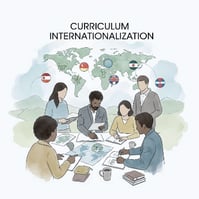





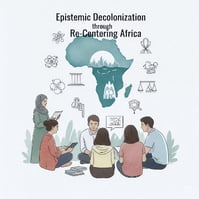

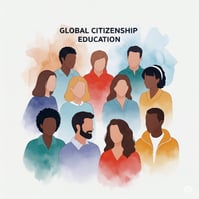


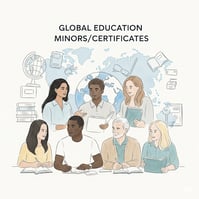

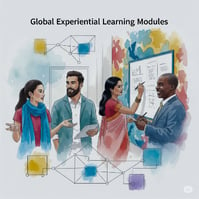



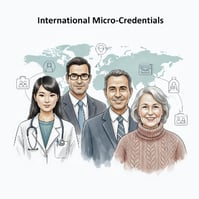







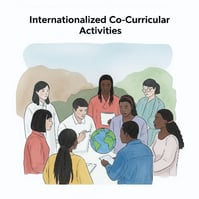





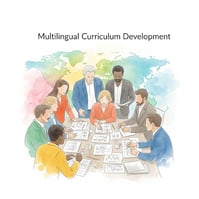
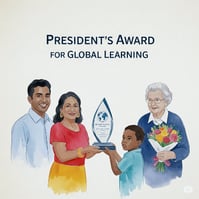





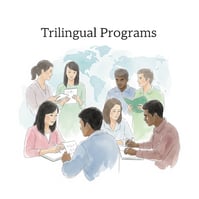

Frameworks
Frameworks allow administrators to explore international initiatives from operational and strategic perspectives.
